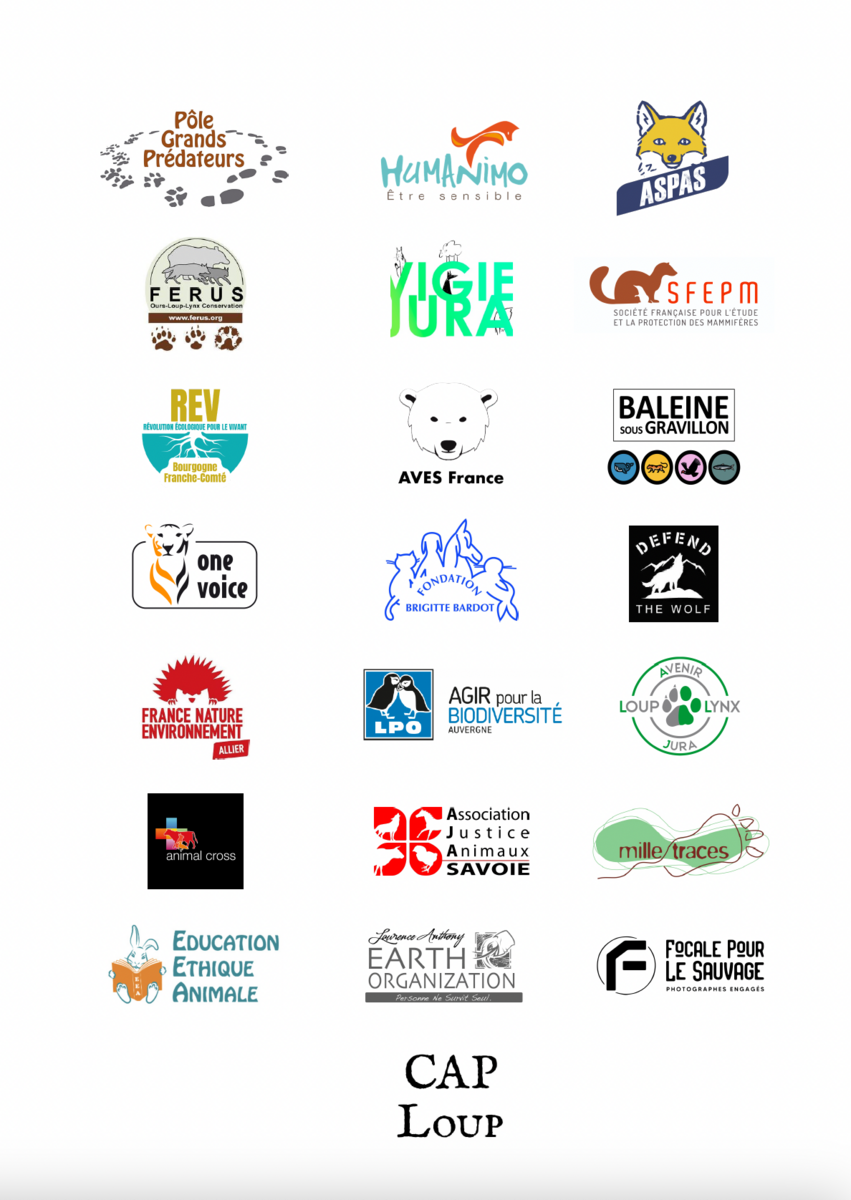

Wolf defence associations respond to the Bourgogne-Franche-Comté farmers’ lobby
On 26 May 2023, the Regional Chamber of Agriculture of Bourgogne-Franche-Comté, three of the main agricultural syndicates in the region (FRSEA, JA, CR), and around ten other organisations published a press release entitled “Farmers or wolves: the Government must choose”. Through this, the authors intend to convince the French State to authorise a more systematic appeal for shooting wolves, under the pretext that cohabitation with the large predator would be impossible, all while touting the alleged benefits of a production-driven agricultural model that is partly responsible for the current ecological and climatic crisis. Such statements clearly have no scientific foundation and, through this document, we intend to re-establish a few facts.
No, defence shots are not “the most effective way to ensure the protection of herds”
On the contrary, studies have shown that defence shots, risking de-structuring the packs, often lead to more attacks, the opposite effect of what was intended. Numerous alternative measures to these shots could be implemented and have proven themselves in many countries, such as in Switzerland with the surveillance of herds proposed by Oppal. On the French side of the Jura mountains, its counterparts FERUS and Vigie Jura have just launched their programme which has received a very favourable reception from the general public. On FERUS’ side, more than 70 eco-volunteers have come forward and, after a training course, are ready to work with willing farmers.
Other means to consider naturally include fences (of sufficient height and voltage), and herd protection dogs, but also assistant shepherds trained in agricultural schools (a proposition recently submitted to the Ministry of Agriculture), anti-wolf collars, etc. Rather than claiming the right to be able to kill wolves more easily, shouldn’t the authors of this press release ask the State to deign to subsidise some of these measures in a more preventative and systematic way for all types of farmers (sheep, goats, and obviously cattle)? It is indeed incomprehensible, and profoundly unfair for farmers, for it to be any other way.
No, unlike large predators such as wolves and lynxes, true “forest doctors” responsible for the health of ecosystems, extensive farming is not in fact “noteworthy for the biodiversity that it generates”
While organic farming, sustainable and based on agroecology promoted by the Farmers Confederation, is effectively able to benefit from ecosystems, unfortunately, it is far from being mainstream in France. It is clear that our region is no exception to that rule unfortunately.
According to a 2020 study from the University of Bourgogne-Franche-Comté, local livestock is primarily responsible for the eutrophication of water courses, themselves being the cause of piscicultural deaths. Partly linked to waste from cheese-making and the excessive spreading of fertilisers, this phenomenon is not the only one to cause a problem. The destruction of hedges, erosion of forests, excessive and premature cutting of pastures harmful to birds and pollinating insects, the destruction of rocky outcrops by rock-breakers, etc., are also sadly commonplace in the region.
Ultimately, farming as it is mainly practised in the region, however extensive it may be, fundamentally remains to be production-driven farming. Far from being a vector for biodiversity, it is undoubtedly among those responsible for the extensive erosion of living nature, not sparing our country. In light of these phenomena and at a time when a WWF study shows global farming itself to be responsible for a 60% loss in land-based biodiversity, to say otherwise would be to show remarkable cynicism.
No, production-driven farming, once again a large majority in the region, is by definition incapable of “harmoniously and respectfully shaping and developing our country”
Furthermore, it is absolutely unnecessary for the maintenance of open spaces. These, like the animal and plant species that live there, existed long before the arrival of cattle. They could be perfectly maintained by sustainable farming, as well as by wild ungulates which we could, in the presence of their natural predators, decide to hunt less. This would also allow wolves to have more prey, and therefore be less tempted to resort to livestock.
Why not assume that the agricultural model that dominates the region, driven by the race for profit, in reality only aims to respond to the insatiable appetite of the global population for farmed products (meat, cheese, etc.), of which scientists recommend reducing our consumption? Moreover, did the Court of Audit not just recommend that France reduce the size of cattle herds to respect its climate commitments? Finally, how can one claim that regional farming is intended to “guarantee food sovereignty” when a significant part of its production continues to be exported to the United States?
No, cohabitation between wolves and livestock, rid of its productivist tendencies, is not “genuinely impossible”
Although far from always being obvious, here it is not a question of denying that the loss of animals can indeed be traumatic for their owners and this is a reality in a number of countries where wolves have never disappeared (Spain, Italy, etc.). This is also the case in France, including in Bourgogne-Franche-Comté, where men and women are committed to working on this by implementing the required protection methods.
The problems that farmers in our region face (international competition, droughts, erosion of biodiversity, etc.) are more profound than the necessity to cohabit with wolves. Is it not time to tackle this rather than pointing the finger at an animal that often serves as the perfect scapegoat?
Be that as it may, the canine has continued to develop since its return to France at the start of the 1990s. It will continue to do so as long as it has the necessary habitats and resources at its disposition. No offence to some, this is excellent news for the preservation of ecosystems endangered by human activities. The sooner we admit this and stop maintaining the untruths brought into question here, the sooner we can act and move forward towards cohabitation that benefits wolves, farmers, and everyone.

Translated from the French by Joely Justice